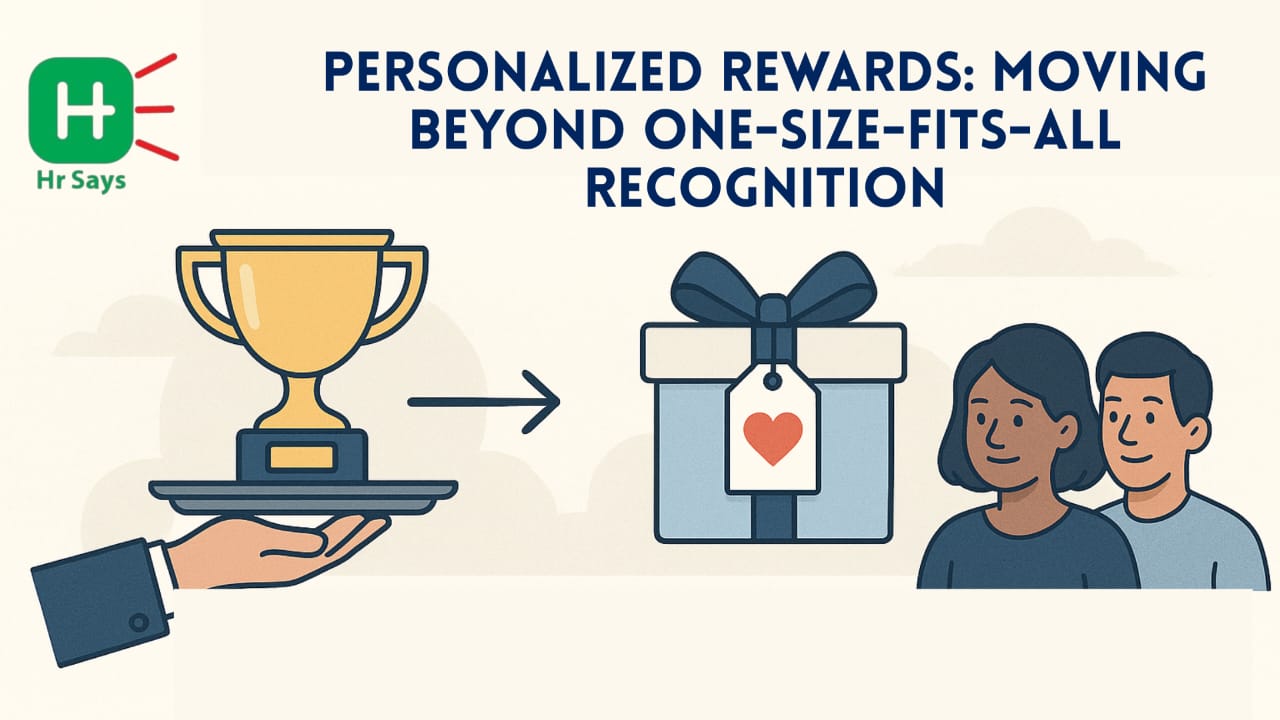What’s the point of a reward if it feels like everyone got the same one?
In many companies, recognition still follows a copy-paste model. Gift cards. Generic emails. One-size-fits-all trophies. But something is missing.
It’s not about if people are being rewarded. It’s about how.
When Everyone Gets the Same, No One Feels Seen
A badge on an app may not excite someone who values time off. A public “thank you” might feel uncomfortable to someone shy. And a free lunch coupon doesn’t mean much if they don’t like the place.
That’s the catch. What motivates one person might mean nothing to another.
The result? Recognition is given. But not always felt.
Why Personalized Rewards Work Better
Recognition becomes powerful when it feels personal.
● It shows attention has been paid.
● It reflects real understanding.
● It signals effort—from both sides.
And people remember that.
Even small gestures—when tailored—carry weight. A handwritten note. An extra day off for a new parent. A skill course for someone looking to grow.
These aren’t grand. But they’re thoughtful.
And that’s what lands.
How Companies Are Making It Work
The shift doesn’t need a big budget. It needs better listening.
Managers are being trained to ask:
● What matters most to each team member?
● How do they like to be appreciated?
● What’s meaningful to them—personally?
Surveys help. Check-ins matter. So do conversations outside performance reviews.
With answers, reward options can be expanded:
● For growth-driven employees: access to new courses
● For caregivers: flexible schedules or extra leave
● For introverts: private recognition instead of public praise
● For achievers: stretch projects or leadership paths
Not all rewards are things. Some are time. Some are space. Some are trust.
The Fine Print: It’s Not All Easy
Personalization takes effort. It needs context. It won’t scale without thought.
Too much variation may cause confusion. Too little, and it feels automated again.
There’s also the risk of perceived unfairness. Why did she get a day off while he got a bonus?
That’s why transparency matters. So do clear communication and shared principles.
Not every reward needs to be personalized. But the big ones should be.
Conclusion
Recognition isn’t about the prize—it’s about the person.
When rewards are designed around real people, engagement rises. Not because of what was
given. But because someone felt seen.
The future of workplace recognition may not be louder. Just smarter. And a little more human.
Because in the end, people don’t want more—they want meaning.

 Not all rewards feel rewarding. When recognition is generic, its impact fades. Personalized rewards—based on what people value—are starting to reshape how appreciation works in modern workplaces.
Not all rewards feel rewarding. When recognition is generic, its impact fades. Personalized rewards—based on what people value—are starting to reshape how appreciation works in modern workplaces.








.jpeg)
.jpeg)

.jpeg)





.jpeg)



.jpeg)

.jpeg)



